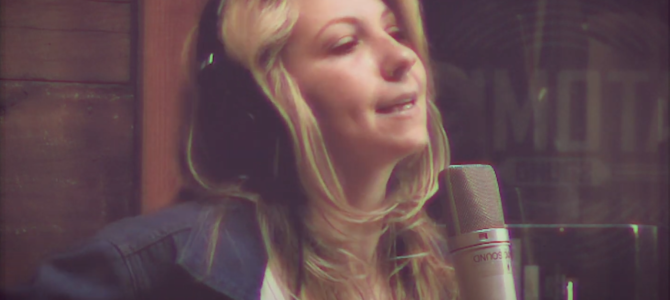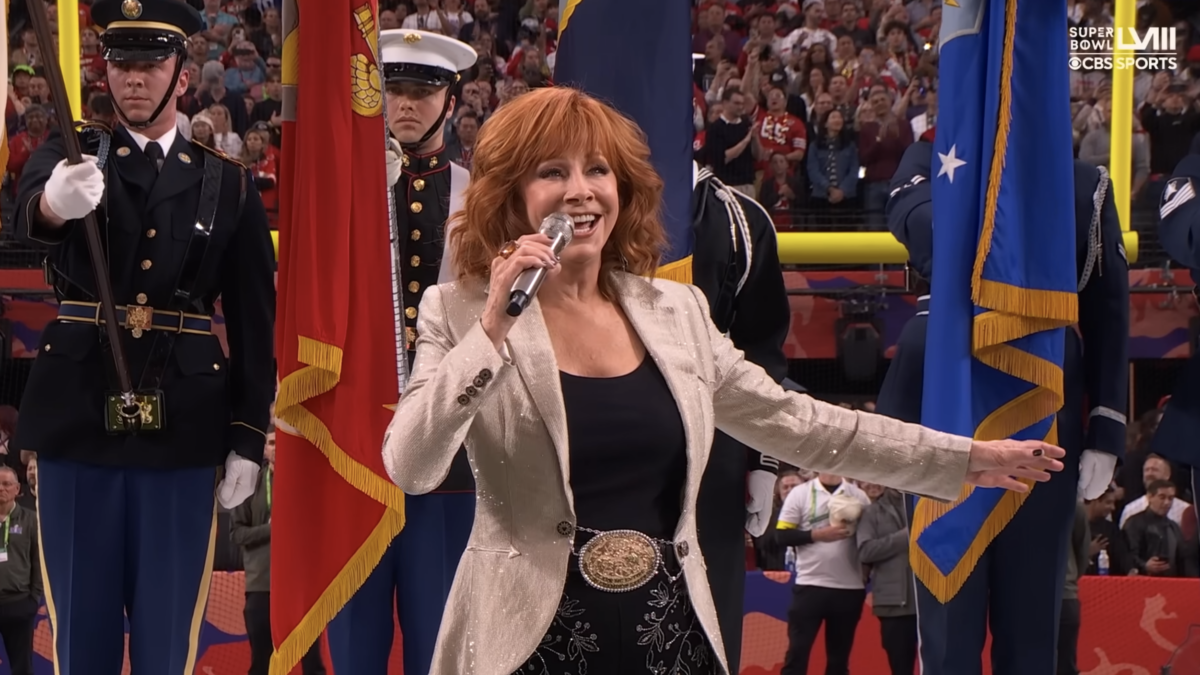
There’s a lot to like about Kelley Swindall, the sultry up-and-comer in Outlaw Country whose sound breezily captures the spirit of an earlier era with confidence and style and none of the usual pretentiousness. Most professional musicians grow up dreaming of careers in the industry, but Swindall decided to pursue music after breaking up with a musician.
Itching to write about the split, she recalled some guitar chords from youth group and got to work. Now, the New York City-based songstress is set to release an LP in the fall, a collection of three standout tunes with a sound and an attitude that should make fans of roots music salivate.
In conversation, Swindall is just as thoughtful, emotive, and gritty as her lyrics. When we spoke by phone in mid-June, Swindall explained her unorthodox path to music, chatted about the historically distinct expectations of female country singers, and mused about how being based in NYC rather than Nashville influences her work.
Swindall’s music is both thematically and sonically true to the genre’s roots, but with a subtle modern, folksy flair. “California” is a talking’ blues with Boy-Named-Sue vibes, a strong story, and a rare drop of the c-word. “Refuse to Be Blue” is a Patsy-esque waltz that gives her smooth, twangy voice plenty of room to shine.
Her latest release, “You Can Call Me Darlin’ If You Want,” swells like “Boulder To Birmingham,” and declares, “I ain’t gonna be anybody’s one and only” over a wailing organ and steel guitar. (A reference to David Allen Coe, perhaps.)
“Never quite could tell the difference ‘tween a lover and a friend, so I’ve often lost the two in the same night,” Swindall croons, finally singing, “Don’t ever call me baby, ’cause I’m not.”
Asked about that lyric, Swindall said it was her way of expressing, “I don’t belong to anyone right now,” a sentiment that can sometimes challenge the mentality of Southern men. “It always kind of pissed me off,” the Georgia-born singer remembered, reflecting on the different standards boys and girls were held to when she was coming of age.
A fan of musical “irreverence,” Swindall told me she enjoys challenging “antiquated structures,” in the spirit of female artists like Loretta Lynn and Dolly Parton. “I think it’s fun to poke fun, and shake things up, and have a good laugh about it,” she said, later describing that country blend of femininity “like a Steel Magnolia, tough but also beautiful and delicate at the same time.”
When she wrote the c-word into “California,” Swindall says it was done in a “fun spirit.”
“It wasn’t with the purpose of being provocative,” she explains. “I’m a woman and I can say this, and that’s okay, and everyone needs to not get their panties in a wad,” Swindall recalled thinking.
Being in NYC imbues her work with a “grit” and “edge,” with “the pace” and “the energy” of the Big Apple, “which is the opposite of country,” Swindall notes. “It’s beautiful, but it’s a little bit more laid back, and there’s something about my work that’s just a little bit more edgy and high energy.” She’s also heavily influenced by the city’s legacy as an incubator of folk music.
Swindall counts Jewel, Tom Petty, and Johnny Cash among her major influences. A deep admirer of Bob Dylan, her harmonica work is all over the LP, having picked up the “badass” instrument out of her love for Dylan and Ryan Adams.
Speaking of Dylan, with whom she proudly shares a fondness for “wordy” song writing, Swindall published a “Blowin’ in the Wind” cover to her Instagram page this month, inspired by its relevance to recent political upheaval. “When I hear ‘the answer is blowin’ in the wind,’ I inserted, ‘the answer is still blowin’ in the wind,” she mentioned, a testament to the song’s timelessness and to society itself, said Swindall.
The artist’s style is as true to country’s roots as her attitude. Asked about the genre’s contemporary aversion to politics, Swindall rightfully pointed back to the 1960’s and Johnny Cash. “There’s something that happens in the ’80s and ’90s, I guess when things get more glossy and commercialized, that it was just like, ‘Y’all, this is the way it is, you know, shut up and sing, don’t have an opinion because that’s what people want to listen to music for—which in my opinion is the opposite of the function of art.”
Now, as the pandemic ebbs and flows, Swindall is confronting the uncertain future of live music just like everyone else. “I do it all because I like to play live. I want to play live in front of people and share my songs. So when I can’t do that it’s kind of like, ‘What am I doing?’ You know, it’s really, it’s weird,” she told me.
The pandemic has at least helped Swindall’s creative process. She’s “writing a lot more,” and “been doing a lot of soul searching, and a lot of thinking.”
“It’s been a heavy time, to be honest, like New York was really heavy.” Back in Georgia, Swindall says she’s starting to find clarity about “what’s really important.”
“I find writing is the best medicine for everything. So in that respect, it’s definitely been fantastic,” she said.
“I’m still trying to figure that out how to use the online platforms and the Internet to reach more people,” Swindall readily concedes. “But I will say, it’s pretty cool when I get a message from someone in Brazil or the U.K. and I’m like, ‘Oh, h-ll yeah, you never probably would have heard my music, you know, 20 years ago.”
Swindall channels the “grit” and “grace” of country music’s female icons with an effortlessness, reviving a classic style and sound while also managing to stamp it with her signature. From the lyrics to the vocals to the production, Swindall’s music successfully pulls from the best of the past without the palpable pretensions of a hipster. It’s smart and smooth and worth the time of any vintage country loyalist. If you’re exasperated with country radio, look no further than Kelly Swindall.









